
Halal Certification
 Muslim Professional Japan Association (MPJA) Since 2013, Muslim Professional Japan Association (MPJA) is one of the leading halal certification bodies that provides for Muslim-friendly certification in Japan. MPJA provides for halal certification to restaurants and accommodation facilities in promoting and implementing proper Halal Standards for the consumers. The body is recognized and has been certified by many Halal Certification Bodies all around the world, including Islamic Development Agency of Malaysia (JAKIM) and the Ulama Council of Indonesia (MUI), and Islamic Committee Office of Thailand (CICOT). Address: Yoshioka Build 3F, 4-32-1 Yotsuya Shinjuku-ku, Tokyo 160-0004, Japan. Halal Certification Process: (Obtained from MPJA's website) Five Major Steps: 1. Application 2. Evaluation Process 3. Agreement with quotation 4. Site Audit 5. Evaluation by Fatwa Committee 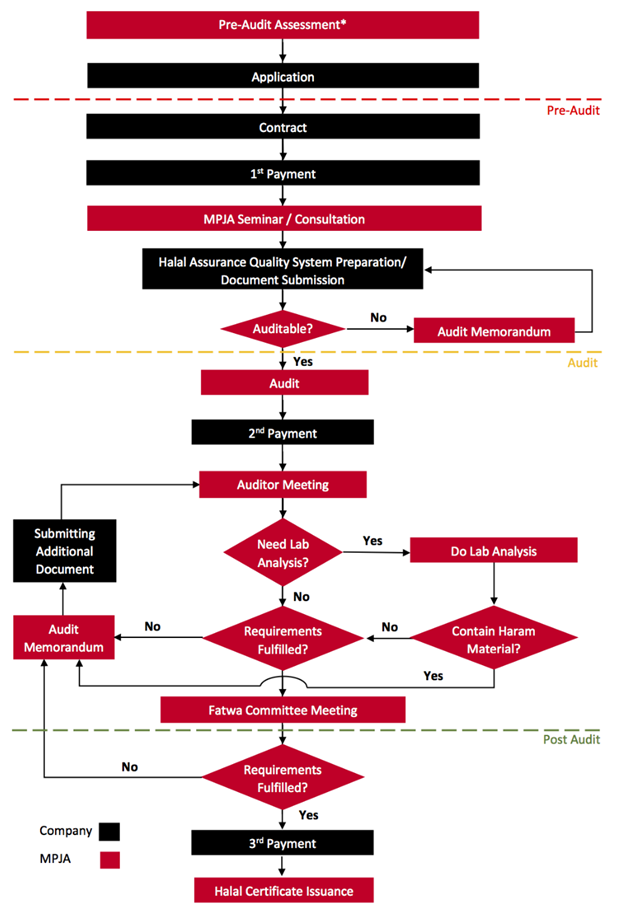
Figure: Halal Certification Process obtained from MPJA's website 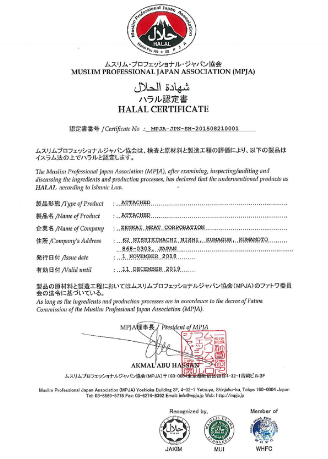
Figure: Sample of MPJA's Halal Certificate  Japan Muslim Access (JMA) JMA is a halal certificate body that was established in March 2017. The body provides for various services in promoting halal to the consumers in Japan, namely halal certification, halal consultation, as well as halal seminar to restaurants, accommodations and factories. Address: Komagata 384, Misato-shi, Saitama-ken, Japan Halal Certification Process: (Obtained from JMA's website) 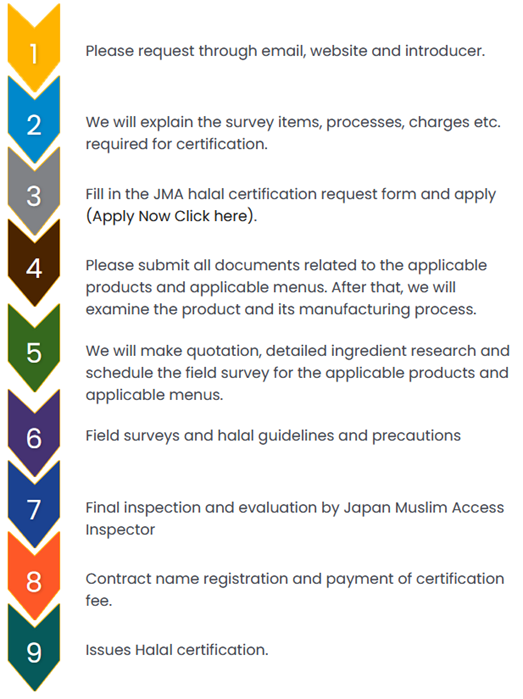
Figure: Flowchart of Halal Certification Process obtained in JMA's website 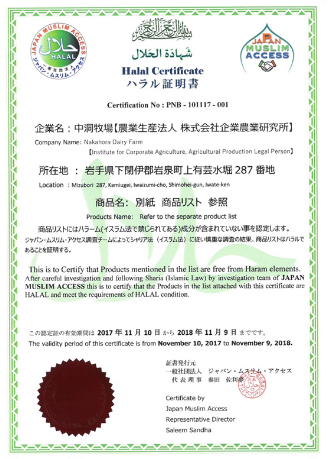
Figure: Sample of Halal Certificate by JMA  Nippon Asia Halal Association (NAHA)
Address: F, 2 Chome-6-2 Matsunami, Chuo Ward, Chiba, 260-044, Japan. Halal Certification Process:
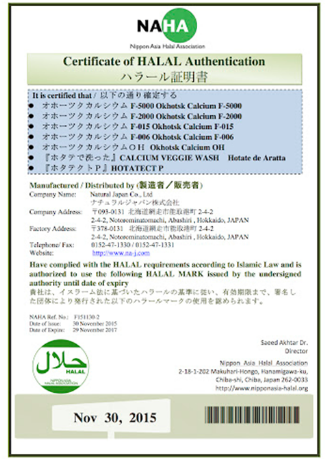
Figure: Sample of Halal Certificate by NAHA  Japan Islamic Trust (JIT) JIT is a registered governmental institution that was established in 2000. The body seeks to serve the Muslims community in Japan by providing various kind of services ranging from halal certification and seminars, domestic services such as marriage certification, family counselling as well as refugee assistance program. Address: 3-42-7, Minami Otsuka, Toshima-ku, Tokyo 170-0005
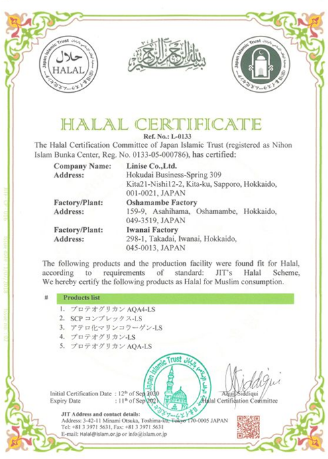
Figure: Sample of Halal Certificate by JIT  Japan Halal Association (JHA) JHA is a halal certification body that is recognized and mutually approved by many Islamic bodies from various country such as Malaysian Government Halal Certification Body (JAKIM), Singapore Islamic Council (MUIS), Thailand Central Islamic Organization (CICOT), as well as UAE and Saudi Arabia. The body is also one of the members of World Halal Food Council (WHFC). JHA provides for halal certification of food products, cosmetics, pharmaceuticals, and logistics services. Address: 3-17-4 Karita, Sumiyoshi-ku, Osaka 558-0011 Excel Abico 2F, Japan Halal Certification Process: (as provided in JHA's website)
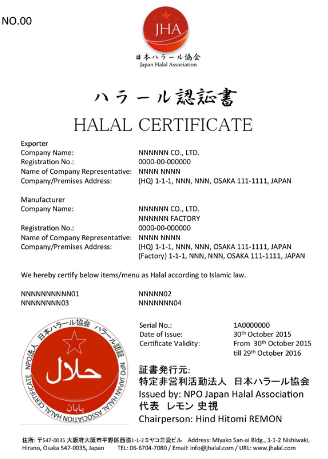
Figure: Sample of Halal Certificate by JHA  Japan Halal Unit Association (JHUA) JHUA, also known as General Incorporated Association JHUA, is an independent body that provides for halal certification in Japan which was established in August 2016. The body provides for various range of services revolving halal certification including approval, training, audit and seminars. Address: Fukuoka System LSI, Development Center, 3-8-33 Momochihama, Sawara-ku Fukuoka City, Fukuoka, Japan 814-0001.

 Japan Halal Foundation (JHF) JHF is one of the leading halal certification bodies in Japan that was established in September 2015. The consulting and supervisory body provides for halal certification process that is in accordance to Shariah principles for the Muslims community. JHF is a member of the World Halal Food Council (WHFC) that is recognized by Malaysian Department of Religion & Islamic Progress (JAKIM( and Singapore Islamic Religious Council (MUIS) and the Dubai Accreditation Center (DAC). Address: 4 Chome−6−7 Taito, Taito City, Tokyo, 〒110-0016, Japan.
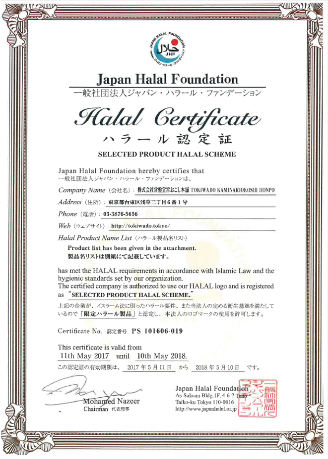
|